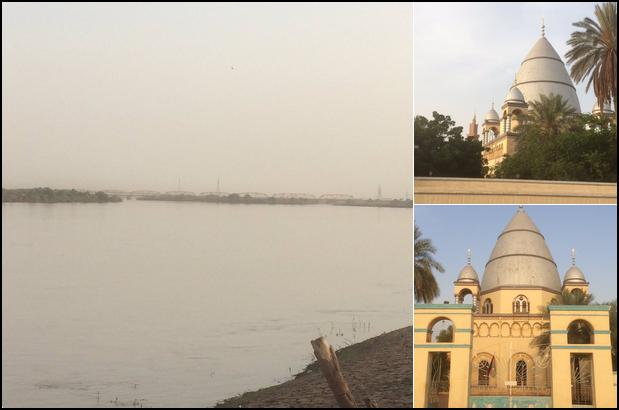Imagine spending a year living beside Africa’s longest river (in El Mansoura, Egypt) and then not seeing those waters again for over thirty years. Imagine falling in love with the culture and people of the Sahel in Senegal and being deeply impressed with the diversity and tolerance of the Islamic tradition in Mali and then watching from afar as ignorant extremists destroy a place that epitomises these characteristics. And then imagine returning to the banks of the Nile, to play a role in helping to resolve the crises that have had a devastating effect on the lives of so many people. This is how I felt as I landed in Khartoum on 19 September for my first visit to Sudan as the UK’s Special Representative for Sudan and South Sudan. A real sense of coming home, coupled with a determination to work with all the people I meet to build a stable and inclusive future for the Sudan. This is how I felt having lived for the first time in my life outside Europe on the banks of the Nile in El Mansoura, then having been British Ambassador to Senegal and Mali, and having had the honour of being made a ‘Citizen of Honour’ of the city of Timbuktu.
The UK is a long standing friend of the people of Sudan, and is committed to supporting the AU peace process led by President Mbeki. I came to Khartoum at a critical juncture in this process, at a time when an agreement to a cessation of hostilities and humanitarian access to the most conflict affected people in Sudan was clearly within reach. I therefore urged the Government of Sudan to seize the opportunity being offered under the AU mediation to end the fighting, and to create the conducive environment for the political discussions that will follow it. Just as I have also used my contact with the armed opposition to be flexible in their approach to the negotiations.
I was pleased to meet the Secretary General of the National Dialogue, Professor Hashim Ali Salim, who assured me that the important debate about the political settlement in Sudan would remain inclusive, allowing those groups that had thus far not engaged in political talks to join the discussion and build a shared future. In addition to the many senior representatives of government that I met during my visit I heard at first hand from representatives of Sudan Call about their hopes for the political dialogue, and on my way home I met the Imam Sadiq el Mahdi to encourage him to continue to be supportive of the process. While in Khartoum I explained to those I met our desire to build a constructive dialogue with the Government of Sudan, one that enables us to work together to support the peace process, but also one that allows us to have a constructive conversation where our opinions differ. I explained that we would continue to support UNAMID’s presence in the country for as long as the situation required it, and that we would continue to raise human rights concerns and support human rights defenders.
I left Khartoum with a real hope that the people of Sudan are working together towards a brighter future. A future that I, in partnership with Sudan’s many friends in the international community, am determined to work for. One in which we will be able to see greater cooperation between Sudan and the United Kingdom, in particular to ensure that all the people of Sudan can enjoy stability, development and economic prosperity. And let’s not forget educational, cultural and business ties between our peoples which will be celebrated during the British Week events organised by the British Embassy Khartoum in the first week of December. I look forward to my next visit to Sudan, when I hope the discussion will have moved further forward, and when I hope to be able to get out of Khartoum to get a better understanding of the country at large.
**You can follow UK special representative for Sudan and South Sudan Christopher Trott on Twitter @ChrisTrott

